62 ka Gaddar Kaun? Here in deets how Left, Communist Parties played deceptive role in 1962 India-China War
Total Views |
By Siddhi Somani -
Communists use all their leverages in India and abroad to dub their criminal and anti-national activities they term as 'revolution'. May it be the JNU attack or the CAA protest or more of such deliberations, assumed mere incidents, the Indian romance about the 'Red Flag' at the cost of all other flags of productivity and progress though waning, is far from over
Long long ago is the tale of 1962 Sino-Indian War, but is coming into the lime light again after almost 57 years today! The Sino-Indian War, also known as the Indo-China War and Sino-Indian Border Conflict, was a war between China and India that occurred in 1962. A disputed Himalayan border was the main pretext for war, but other issues also played a significant role.
In the history of wars, there compulsorily has been a strong betrayal behind every defeat. Betrayal from those they considered close, from those who never had been in the range of bluff. Raising the painful episode of that betrayal in 1962 Sino-India war, that gave official rise to communism in India, BJP Delhi Spokesperson, probab;y ahead of the Delhi Assembly elections has highlighted key takeaways over ponders about what role did the Left party or the Communist party play in the 1962 war.
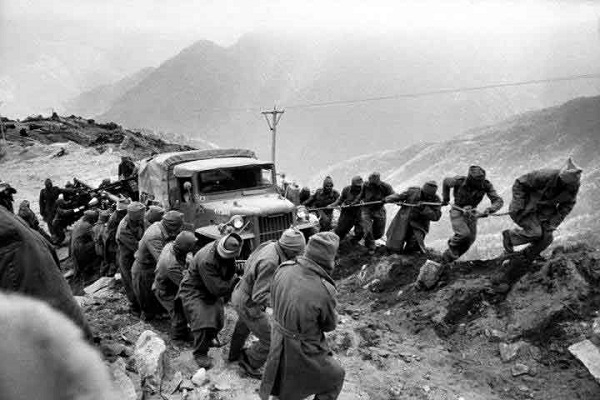
"What was Left / Communist Parties Role in 1962 India-China War ? Tweet Left/Communist Party Leader statements during India-China War ?", he tweeted engaging the social media users to speak out the truth of Communist party under the trending hashtag '#62KaGaddarKaun'.
What was Left / Communist Parties Role in 1962 India-China War ? Tweet Left/Communist Party Leader statements during India-China War ? Tweet in Reply with hashtag #62KaGaddarKaun I will RT
— Tajinder Bagga (@TajinderBagga) January 7, 2020
What happened in 1962?
In 1962, as the Indian army fought Chinese aggression in the Himalayas, the undivided CPI supported China, putting ideology above nation. The former Chief Minister of Kerala V S Achutanandan who was a CPM politburo member at that time was sacked for suggesting that they should organise a blood donation camp for the Indian Army soldiers.
The pro-India line he took was declared anti-party by the Communists. It was an known fact that during the 1962 war, the CPI had supported China. They cited ideology and put the same above the nation. The government at that time had sent many comrades to jail. Achutanandan who was also thrown into jail suggested that the narrative must change against the party. He was part of the jail committee in the Thiruvananthapuram central jail.
During one meeting he suggested that donating blood to the jawans and contributing money from the sale of prison ration would help them overcome the image of them being Chinese agents. The proposal was immediately shot down by O J Joseph, a communist leader.
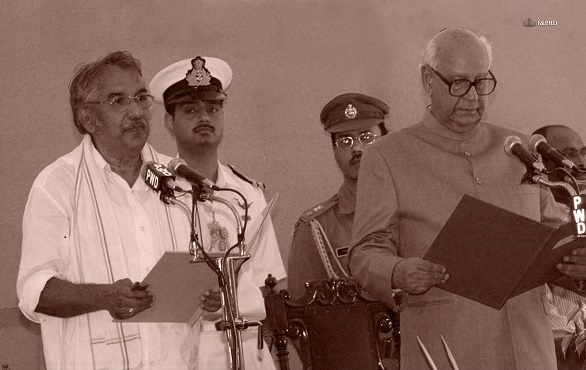
VS however did not give up and tried at the next meeting that led to a scuffle between him and Joseph. The jail authorities had to intervene and subsequently the news leaked to the media. Jyoti Basu who was part of the West Bengal CPI ordered an inquiry into the incident. The row escalated and VS dropped his plan.
In 1965 a party worker filed a complaint with the party leadership. In his complaint he spoke about the anti-party activities of VS, who was then demoted from the central committee to the branch level. The CPM while demoting VS said that he had decided to donate blood to the jawans without consulting with the party. His move amounted to helping the Indian government and hence the action was anti-party.
The rise of Communists, the so called 'liberals' :
The decade of 50s was characterized by romanticisation of communism in India. Such was the romance that many leaders of the post-Independence dispensation, most of who claimed to have made huge sacrifices for India's Independence, hailed the Communist takeover of China. It may be underscored that India was the first non-communist country to accord diplomatic recognition.
The communist leadership in India were not ideologically and physically bred in underground manner as was the case in USSR, China or Cuba, nor did they go through the hardship of jungles. Most of them were privileged lot, who received their education in Oxford and Cambridge in UK. It is here that they were indoctrinated by the erstwhile British masters and returned to India as diehard Communists.
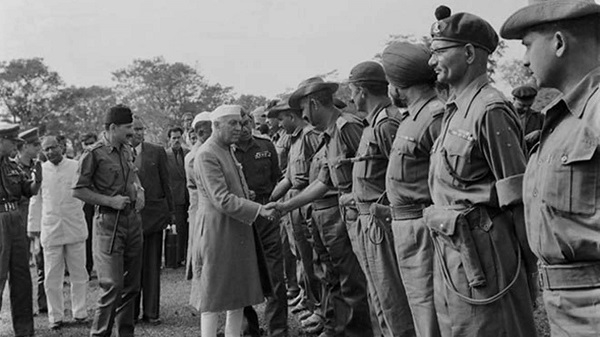
These so-called Communists were perfectly married to the British agenda in the pre-colonial period. Left-liberalism was the perfect tool to legitimize the colonial rule as it robbed Indians of any sense of pride in India's past. This phenomenon was not confined to India alone.
Post Cold War the mantle of patronage to left wing extremisms has gradually shifted to European countries which are using it as leverage to pursue their economic and religious agenda. Later, these very communists, who abused Indian history, religion and Indian social structure captured academic institutions and intellectual space in India. Educational institutions in Bengal, which at one time produced such brilliant scientists, began to churn out purposeless graduates steeped in denial and negativity.
Communism, in fact, robbed Bengal of its scientific and productive temper and intellectual capital. Such was the momentum of communists that hardly any university in India was left un-impacted by their diabolical onslaught. Even a newly established university like the JNU, far from promoting pioneering research, sunk into leftist cynicism and sterile pseudo -intellectualism.
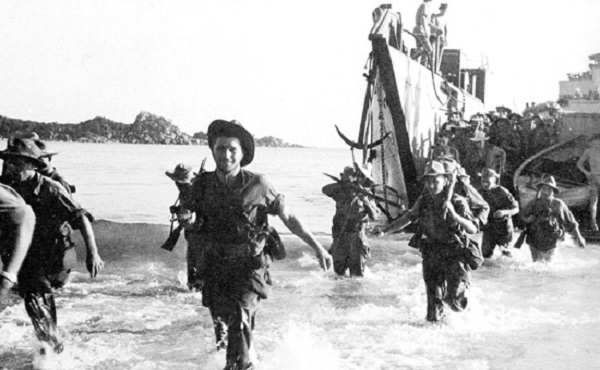
The 50s, therefore also witnessed massive inroads by Communists in all spheres of activity and governance in India. The then government had its share of Communists or Communist sympathizers. VK Krishna Menon was more than just left leaning while some of the declassified documents of that period are not very charitable about his international linkages. This period was also characterized by great Soviet-China communist bonhomie, and bitter and fierce Cold War.
Indian Army, a victim then :
In the 50s the ruling party did not have any insecurity on account of political opposition. There were however unfounded rather purely imagined suspicions vis-à-vis the Indian Army. No geopolitical development and no threat were strong enough to outweigh these apprehensions of the ruling class. So, a Prime Minister went to the extent of saying that he does not need the Army and could do without it. Discussions were held in parliament about employment of Army in agriculture.
During that period, Ayub Khan in Pakistan, Sukarno in Indonesia and King Mahendra in Nepal, abandoned Western pattern of multi-party democracy and opted for 'grassroots democracy'. The victim of the insecurity of the Indian leadership was the Indian Army. The myopia of these thankless leaders did not extend beyond exigencies of office'. They undermined the role of INA and the Naval Mutiny in securing India's Independence, a fact authenticated by Clement Atlee, former British Prime Minister.
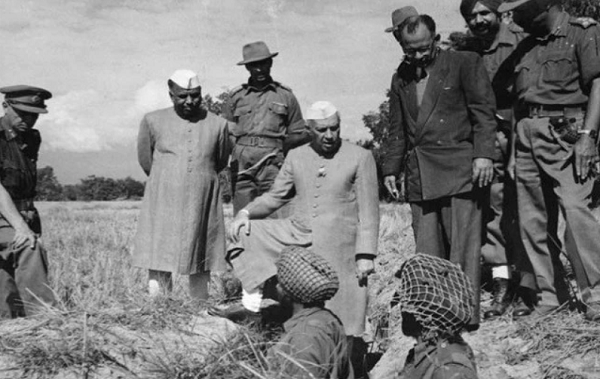
They deliberately ignored that the India, they were presiding over, was put together by none other than the Indian Army. Indian Army was perceived as a potential villain, a perception no less fueled by the bureaucrats, who still basked in colonial hangover, wherein Oxford and Cambridge became the ultimate destination for their loved children, only to be replaced by the US later. This sin perpetrated by the leaders on their own army, was bound to recoil, and it did in 1962.
The fact that border negotiations between Pakistan and China had begun in 1961 and the broad principals were agreed upon within months after Indo-China war in 1962 does raise suspicion about some sort of understanding between the leadership of Pakistan and China about the Indo-China War. These geopolitical developments when seen through the Communist or left, liberal prism in India, was not a matter of concern and priority. The nexus between Pakistan and China meant nothing to them
The Present :
Despite 1962 there has been steady supply of elements within the Indian polity, policy-makers and academia whose agenda has been to allow China to steal the march and dwarf India in international stature and prowess. It is this lobby that sabotages indigenous defence production and ensures that our foreign policy becomes hostage to vicissitudes of arms imports. This lobby rather thrives on India's adversarial relationship with China. This lobby is loathe to any equal cooperative mechanisms between the countries.
Even now, communists use all their leverages in India and abroad to dub their criminal and anti-national activities they term as 'revolution'. May it be the JNU attack or the CAA protest or more of such deliberations, assumed mere incidents, the Indian romance about the 'Red Flag' at the cost of all other flags of productivity and progress though waning, is far from over.

